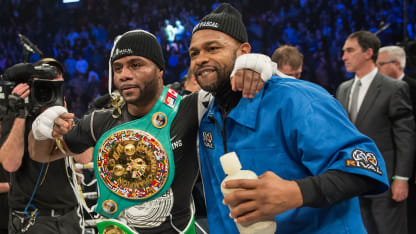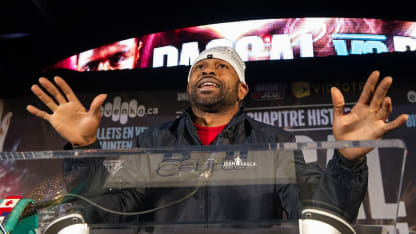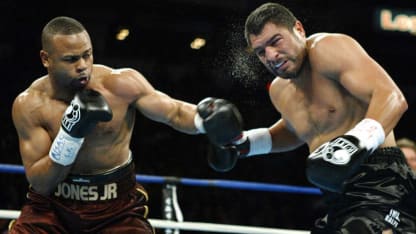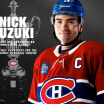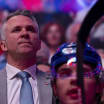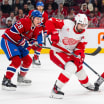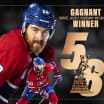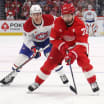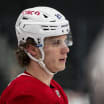What do you think of fighting in hockey?RJ: I just don't like when guys hit each other with their sticks or stuff like that. Do it man-to-man like they used to or if you don't want to do it, just decline the fight. If you want to do it, do it with your fists and with no stick. That's part of the game. That's what makes it so good.
You've been working with Jean Pascal, who has said many times that you were his idol. What kind of student is he?RJ: I love him to death. I love the fact that he idolized me and wanted to be what I was. I had high standards during my career and he wants the same thing. I appreciate it and I love helping him to try and get to the same level. I'm very enthusiastic in doing it because he still wants to learn. He's a perfect student. I come here, I show him things and when I come back, he knows how to do them. I'm all done after that. He truly listens and learns what I'm trying to teach him.
For many years, you've been considered the No. 1 pound-for-pound fighter in the world. If you had been in the same weight class, who would have won a fight between you and the former pound-for-pound king, Floyd Mayweather Jr?RJ: I would've beaten him. Without a doubt, without a question. It's because of his style. People have to understand, he fights the same way that James Toney fought, but he's not as powerful as James Toney. So if James couldn't beat me, how could Floyd do differently? He's going to try to land one or two punches at a time, but I was a better defensive fighter than he was because I used my feet pretty fast. He wouldn't hit me with his one-two combinations and he wasn't powerful, so how would he beat me?
You've had an illustrious career, accomplishing pretty much everything that could be done. What keeps you going at age 48? Is fighting into your 50's like Bernard Hopkins a goal of yours?RJ: I don't know if I'm going to go until 50, but I still have the same motivation every day to go to the gym. I still feel good, that's the main thing. The biggest thing is if my body can hold up. If it can, then I'm good. If it can't, then it will be time to get out.
